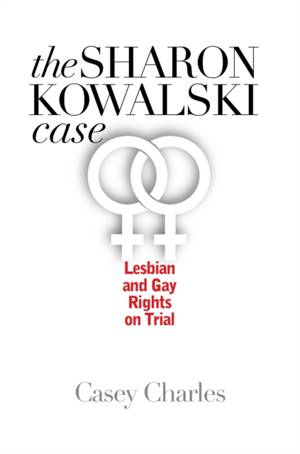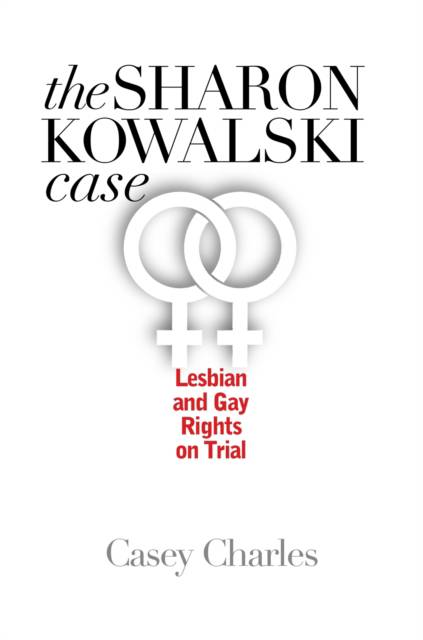
Door een staking bij bpost kan je online bestelling op dit moment iets langer onderweg zijn dan voorzien. Dringend iets nodig? Onze winkels ontvangen jou met open armen!
- Afhalen na 1 uur in een winkel met voorraad
- Gratis thuislevering in België vanaf € 30
- Ruim aanbod met 7 miljoen producten
Door een staking bij bpost kan je online bestelling op dit moment iets langer onderweg zijn dan voorzien. Dringend iets nodig? Onze winkels ontvangen jou met open armen!
- Afhalen na 1 uur in een winkel met voorraad
- Gratis thuislevering in België vanaf € 30
- Ruim aanbod met 7 miljoen producten
Zoeken
€ 50,95
+ 101 punten
Omschrijving
While car-crash victim Sharon Kowalski lay comatose in the hospital, battle lines were drawn between her parents and her lesbian companion Karen Thompson, initiating a nearly decade-long struggle over the guardianship of Kowalski. The ensuing litigation became a rallying point for gays and lesbians frustrated by laws and social stigmas that treated them as second-class citizens. Considered the most compelling case of his lifetime by the late Tom Stoddard, former executive director of the Lambda Legal Defense Fund, the Kowalski legal saga also resonated deeply among AIDS patients who worried that they too might be legally deprived of their partners' care. A gripping story of love and law, The Sharon Kowalski Case chronicles one of the true landmarks in the fight for the rights of same-sex partners, fully framed for the first time within its social, political, and historical contexts. Drawing on trial transcripts, medical records, newspaper archives, and personal interviews, Casey Charles goes well beyond Thompson's own highly personal account in Why Can't Sharon Kowalski Come Home? In the process, he brings to life emotions and personalities that dominated the courtroom dramas and illuminates the highly contested judgments emerging from supposedly "objective" authorities in journalism, medicine, and the law. Charles weaves together various versions of the story to show how one isolated dispute in Minnesota became part of a larger national struggle for gay and lesbian rights in an era when the movement was coming of age both legally and politically. His account recalls the rough road lesbians and gay men have had to travel to gain legal recognition, examines how the law is politicized by the social stigma attached to homosexuality, and demonstrates how conflicted the decision to "come out" can be for lesbians and gays who view "the closet" as both prison and refuge. For Charles himself--as a gay man with HIV--this story greatly transcends mere academic interest and necessarily addresses the broader implications for lesbians and gay men for legal recognition. His book should be both instructional and inspirational to all readers concerned with the evolution of civil liberties--especially for lesbians, gays, and the disabled--in America today.
Specificaties
Betrokkenen
- Auteur(s):
- Uitgeverij:
Inhoud
- Aantal bladzijden:
- 318
- Taal:
- Engels
Eigenschappen
- Productcode (EAN):
- 9780700612666
- Verschijningsdatum:
- 20/05/2003
- Uitvoering:
- Paperback
- Formaat:
- Trade paperback (VS)
- Afmetingen:
- 163 mm x 234 mm
- Gewicht:
- 498 g

Alleen bij Standaard Boekhandel
+ 101 punten op je klantenkaart van Standaard Boekhandel
Beoordelingen
We publiceren alleen reviews die voldoen aan de voorwaarden voor reviews. Bekijk onze voorwaarden voor reviews.











